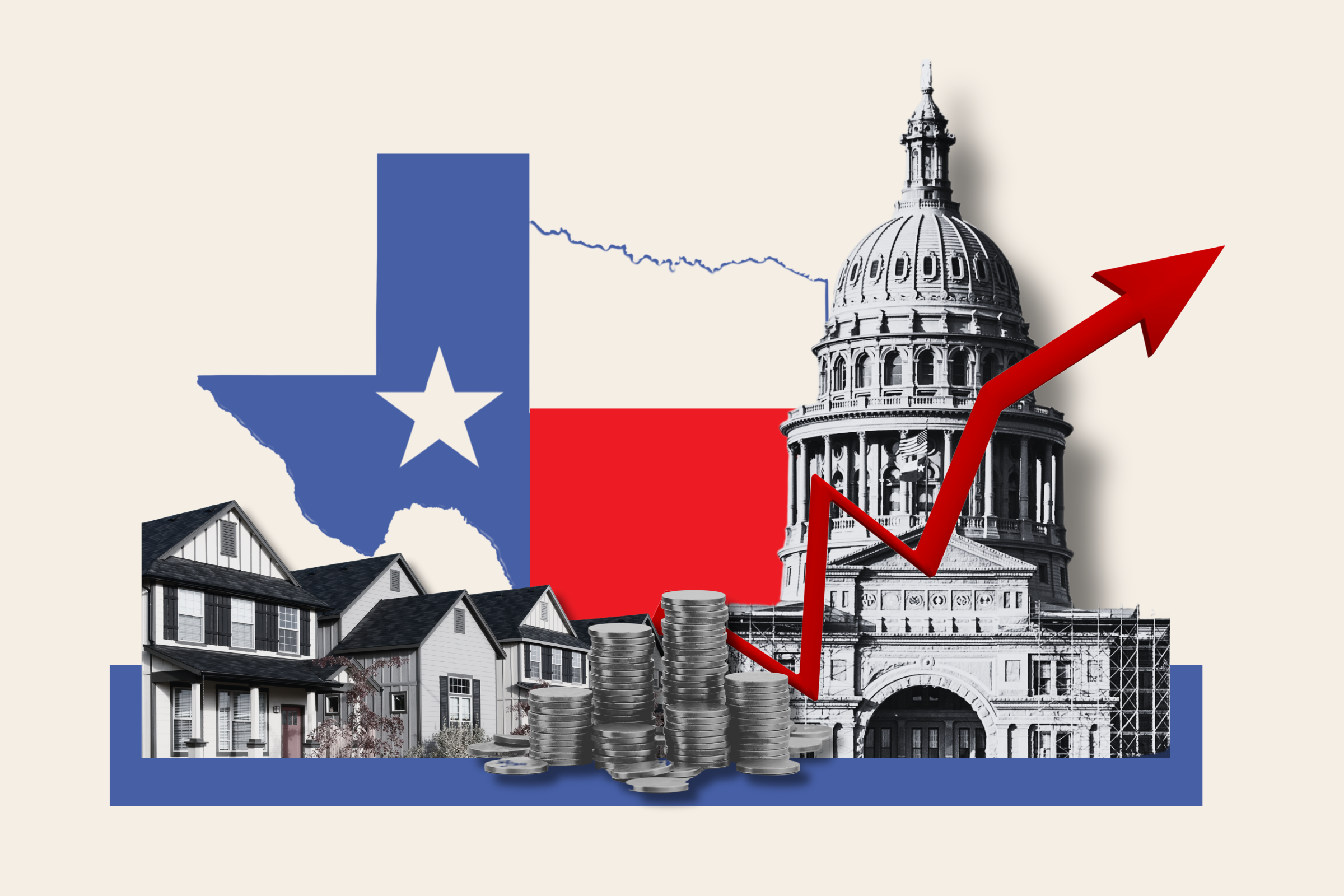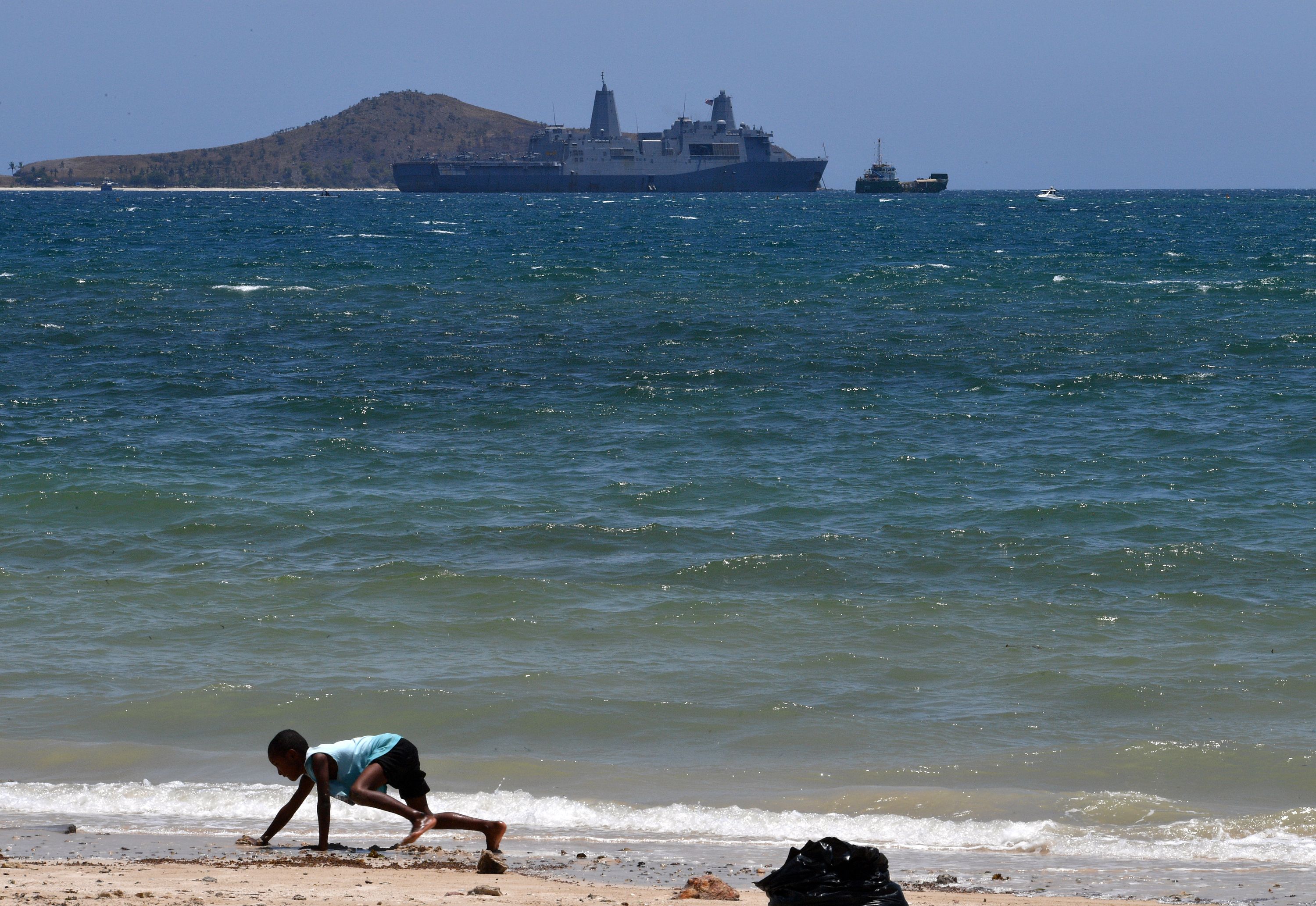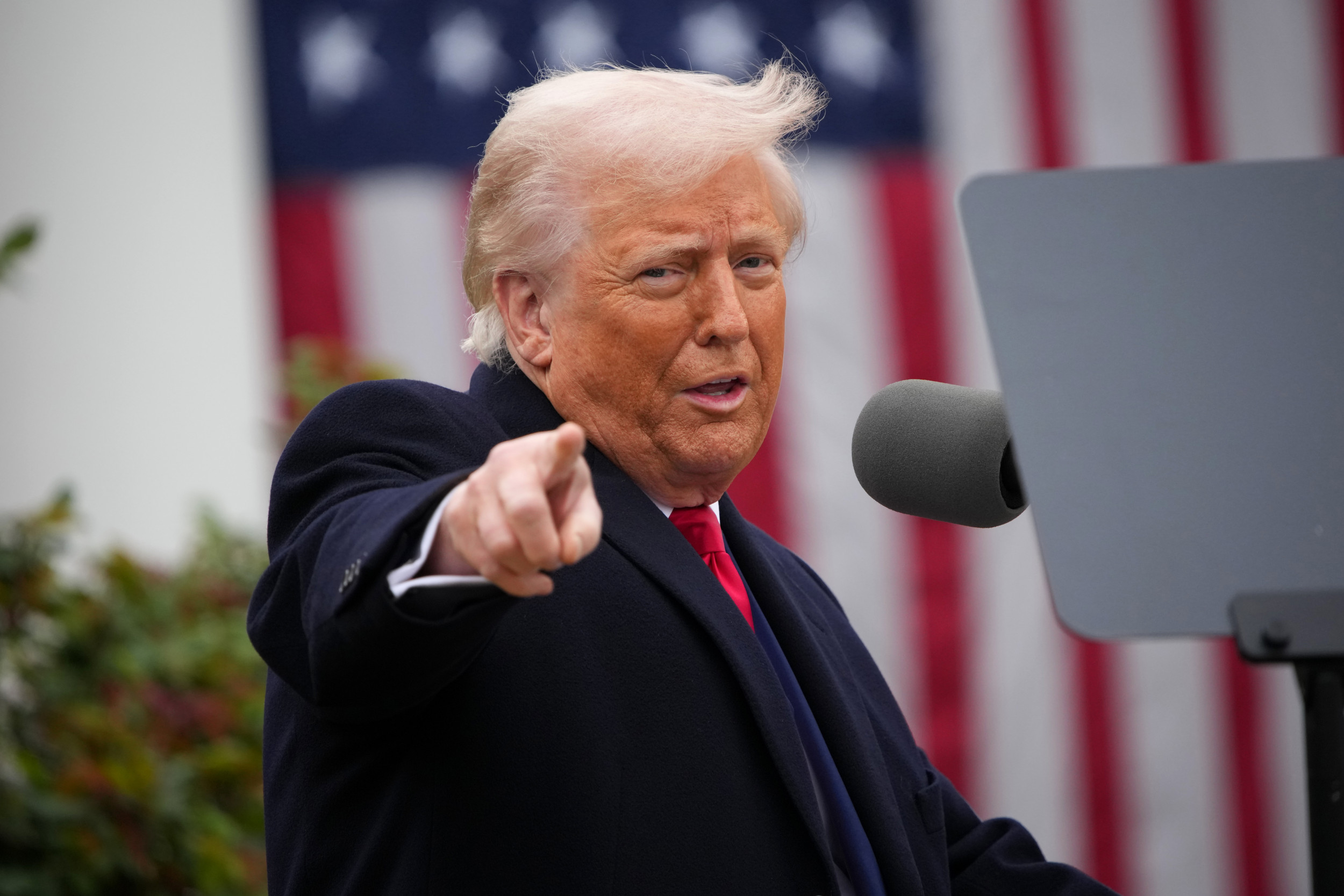Foreign ministers of two North Atlantic Treaty Organization (NATO) allies credited President Donald Trump with successfully forcing an increase in defensive spending amongst member states — a feat that every president from Ronald Reagan to Barack Obama tried, and failed, to achieve.
Following a meeting with Secretary of State Marco Rubio on Tuesday, Estonian Minister of Foreign Affairs Margus Tsahkna told Newsweek in an interview that he had "no doubt" about the U.S. commitment to the alliance.
He also said he was "happy as well that President Trump again has pushed European countries in NATO to invest more heavily in defense."
"I think that they would have done it and should have done it already 10 years ago, and we Estonians, we don't need to change our policies," Tsahkna said. "We have decided already that we are crossing the 2 percent agreed investment level. We decided last week that we reach at least 5 percent next year, and it can probably it's going to be even [higher]."

"So we see that all the Baltics, also Poland, which is a big country, is doing 5 percent within the next years," he said, adding, "it is not only because of President Trump. It's because we see the real threat from Russia. We have agreed in NATO the regional defense plans already during the NATO Summit in Vilnius two years ago, and we are just fulfilling the gaps that we have agreed."
In a separate interview, Lithuanian Minster of Foreign Affairs Kęstutis Budrys said that he believed NATO is "getting stronger ... for sure" thanks to "again and again, call from President Trump to invest more, to do more," which Budrys said would "build even more strength and power in the alliance."
"This is the most effective organization, the most long-lasting organization, as the alliance is working for 75-plus years already, its deterrence works, and it's effective," Budrys said. "So, we have to do more to be effective in the future, and that's what we heard with the first Trump administration. That's what we are hearing now, and I'm looking forward for it to be even more implemented into the actions. That's what we need."
Members of NATO, which counts 32 countries across Europe and North America, have redoubled their efforts to improve defensive readiness in the face of Russian aggression against Ukraine, and calls for Trump going back to his first term that the European member states needed to increase their spending on defense.
Defensive spending in the alliance slumped in the 1990s, with the average spend dropping to around 1.5 percent of national GDP, according to NATO's website. Belgium, a founding member, averaged 4.4 percent of GDP spend on defense from 1975 to 1979, but by 1990 to 1994 was earmarking just around 1 percent of GDP for defense.
That was supposed to change in 2014 after Russian President Vladimir Putin invaded Crimea, prompting the pledge from each member of the alliance – then at 28 countries – to spend 2 percent of their national GDP on defense.
However, members did not fulfill that commitment for a few years, and Trump made it a priority to hold them to their commitment. He threatened to leave NATO unless other members increased their allocations, and he bragged at a rally in South Carolina during his 2024 presidential bid that he "encouraged" Russia to "do whatever the hell they want" to countries that failed to do so.

Those threats appeared to work: In 2014, only two countries besides the U.S. met or exceeded the commitment – Greece and the United Kingdom. The Baltic states – Estonia, Lithuania, and Latvia – have now all met their commitment, along with Poland, Romania, Hungary and Finland. Several others sit just below that level with plans to increase spending. Notably, the bulk of those countries border on or are close to Russia.
Budrys addressed the pace of improvement, saying he thought "some of the skeptics, political skeptics, of investing more" had that luxury because they were "further away from the NATO front line, from where we are."
He said they "think that ... in the case of some small-scale operation, they won't be affected, and it will somehow be resolved with the capabilities that are already at the border or with some of the assistance of larger allies. That's wrong thinking, and it's the illusion about the consequences of it."
"The message here that if something happens at the front line, there will be immediate economic, financial, political consequences to all the members in Europe, first of all, and that's why we have to do our part, all of us together, and act now," Budrys added. "So, this is the time frame where U.S. political message is even more needed."
Tsahkna, of Estonia, noted the "paradox that Putin has been the best salesman of the NATO enlargement," referring to Finland and Sweden's decision to reverse course and join the alliance only after tanks rolled across the Ukrainian border in 2022. Both had resisted for decades.
"NATO is in better place than three years ago, because NATO is stronger than ever before," Tsakhna said. "I'm very happy that the other NATO member states in Europe, they are following that."
The European Union separately pledged to increase military expenditure after Trump openly argued with Ukrainian President Volodymyr Zelensky in the Oval Office last month, resulting in the U.S. temporarily withdrawing military spending and battlefield intelligence sharing with Kyiv.
However, some NATO members remain split on just how much to increase spending, citing concerns over strains on heavy debt burdens and a hit to their famously extensive welfare programs, which they could develop in part because to the protective umbrella NATO and the U.S. military provided while their military spending slid.
Budrys stressed that while the assessment of each nation's situation would vary, it "is the question of priorities: What's your top priority?"
"For Lithuania, top priority, this is security, and only with security you have, you can achieve the prosperity and the welfare and the other goods," he said. "But the fundamental good is security. That's where we are starting. And of course, there is the price for it to pay when you prioritize."
Tsahkna agreed with that stance, saying, "we have pensioners, we have as well the education systems, we have as well the social systems, medical systems, but my message is clear that these kind of peace times are over."
"We need to understand that if we want U.S. standing together with us, we need to pay and invest as well to our capabilities," he said. "The burden must be shared. It's very, very honest thing to us from U.S. as well. It is a good thing for our alliance, but as well, Russia will remain a threat. And it's not only our problem as bordering countries."
This article includes reporting by The Associated Press.
About the writer
Peter Aitken is a Newsweek Politics Editor based in New York. His focus is domestic U.S. politics, but he has ... Read more



